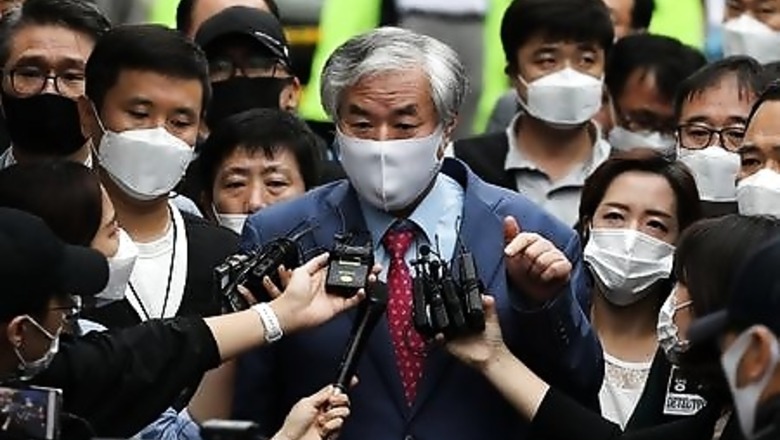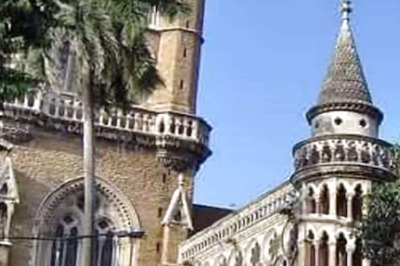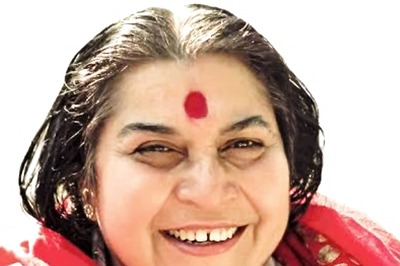
views
SEOUL: South Korea’s latest COVID-19 outbreak has triggered a public backlash against conservative Christian churches for defying government orders aimed at preventing the disease’s spread.
At least a third of the 4,500 COVID-19 cases confirmed in the greater Seoul area over the past three weeks have been traced to church members and others who attended a Aug. 15 anti-government rally, the country’s largest cluster in months.
Authorities said quelling the outbreak was hampered by some 650 church members and 7,700 protesters avoiding or refusing testing as of Tuesday, and more than 300 congregations breaching a ban on in-person gatherings.
Mainstream Christian figures and conservative opposition lawmakers have criticised the Sarang Jeil Church at the centre of the latest COVID-19 outbreak and other churches for spreading fake news, aggravating the COVID-19 outbreak and depleting public resources.
As the second wave of infections in mid-August emerged, conservative political parties are keeping the churches at arm’s length, wary that aligning with them is scaring away independent and centre-right voters who are key to broadening their support and helping them win the next presidential election in 2022.
“Those radical groups are different from us,” Joo Ho-young, who leads the main opposition People Power Party, said last week. “Their extreme arguments made us look as if our party shares such thoughts, and that clearly makes it difficult for politically neutral people to support us.”
The People Power Party’s approval ratings surpassed those of liberal President Moon Jae-in’s ruling party for the first time since 2017 prior to the Aug. 15 rally but fell afterward.
Church members said they never intended to disrupt government efforts to contain the outbreak.
South Korea’s Christians have a long history of political activism, with many mega churches founded by evangelicals who fled North Korea’s communist rule ??before and during the 1950-53 Korean War.
But, the churches’ current grassroots movement, consisting largely of mid-sized Protestant congregations, has formed into a radical conservative faction that is opposed to Moon. Some of these church leaders say Moon is “communising” the country by practicing a pro-North Korean and anti-U.S. ideology.
PUBLIC AND POLITICAL BACKLASH
The churches’ movement is led by Rev. Jun Kwang-hoon, the Sarang Jeil founder and an outspoken critic of Moon. [nL4N2FN3HM]
Jun was re-imprisoned on Monday for attending the Aug. 15 rally since it violated his bail in April from an indictment earlier this year for breaking election laws.
Jun’s influence is bolstered by the support of people that officially attend other churches but revere him. There are more than 4,000 of these “wilderness believers,” according to Park Yoon-sik, a senior Sarang Jeil member.
Park called Jun the “greatest prophet of the time” who is risking his life to protect the country.
Ko Jeong-ae, one “wilderness believer” who attends a major church in southern Seoul, said she was previously not politically active.
“One day I happened to watch Rev. Jun’s eye-opening sermon on YouTube – I realised that Moon’s pro-North socialist forces are manipulating my country,” she said. “I had to go out to the street.”
But such views have failed to win over mainstream Christian and non-religious voters.
A petition with Moon’s office calling for Jun’s arrest has garnered 480,000 signatures.
“The churches face a backlash because they now serve as more of a political group rather than a community of faith. And with their political inclination, they are seen confronting the government which is spearheading the battle against the coronavirus,” said Kwon Yon-gyong, a professor of Christian studies at Soongsil University in Seoul.
However, Jun remained defiant as he was led back to prison, saying his church was being scapegoated for political reasons.
“The Republic of Korea is degenerating into a totalitarian country,” he said.
Disclaimer: This post has been auto-published from an agency feed without any modifications to the text and has not been reviewed by an editor




















Comments
0 comment